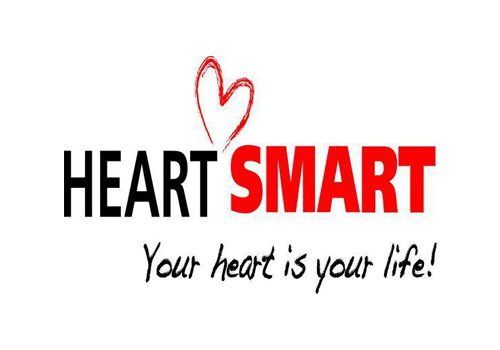1. Quit Smoking
No if’s or ‘Butts’ – Smoking is one of the most preventable causes of heart disease and ill-health. Giving up is one of the best things you could do for your health in 2017. Physical withdrawal from nicotine only lasts one month; while it can be uncomfortable the health benefits of quitting are immediate and powerful:
- Within 20 minutes your blood circulation will improve, your heart rate and blood pressure will lower – immediately reducing your risk of heart attack.
- Within 24-48 hours all the carbon monoxide will have left your body.
- Within a few days your sense of smell and taste will start to improve.
- Within 1 year your chance of a heart attack drops by half and within 10 years the risk drops to almost the same as a non-smoker.
2. Get Active
150 minutes of moderate intensity exercise per week can reduce your risk of heart disease and stroke by 30% and regular moderate exercise has been proven to reduce your risk of dying from breast cancer by up to 50% and colon cancer by up to 60%.
Many of us fall into bad habits, which can be compared to a cosy bed on a cold morning – easy to get into, but hard to get out of. No matter what challenges we face in life, there will always be barriers, but it is how we overcome our barriers that matters. You have the power to choose to approach exercise in a positive and optimistic way.
If you’re not regularly active, start with small steps by taking a 30 minute walk every day*. Exercise is often about finding the thing you enjoy, whether it’s walking, running, cycling, hiking, yoga, a team sport, whatever – once you’re getting your 150 minutes of exercise into your week, you’re immediately taking the right steps to better health.
Read more top tips to help you create an active habit!
*Remember to always consult your GP before engaging in physical exercise.
3. Become Heart Smart!
Key numbers to track for your heart health include Blood Pressure, Cholesterol, Body Mass Index (BMI), and Waist Circumference. By aiming to achieve the recommended target levels listed here, you can reduce your risk of heart disease and stroke by as much as 90%.
This year get to know your numbers. Get your blood pressure and cholesterol levels checked. Knowing your numbers will help you to identify and prevent risk of heart attack. Known as the ‘silent killer’, high blood pressure rarely causes any signs or symptoms, therefore the only way to detect the condition is to have your blood pressure checked. The good news is that blood pressure (BP) is easily measured, with little discomfort and Croí recommends that everyone should get their blood pressure checked at least once every year.
4. Eat for your Heart
The Mediterranean diet is a heart-healthy eating plan based on all the classic foods and beverages that were consumed in the countries bordering the Mediterranean Sea in the 1960s. The diet is focused on more good fats (monounsaturated & polyunsaturated fats), less bad fats (saturated & trans fats) and overall more fresh than processed food items. It is important to note that the Mediterranean diet is not a weight-loss diet but rather a way of eating that can lead to weight loss and overall better health. Researchers have shown that the Mediterranean diet protects against cardiovascular diseases, cancer, diabetes, Alzheimer’s and Parkinson’s disease.
Aim to ensure you get a healthy balanced diet by eating lots of fruit and veg, lean meat & fish with your meals, while reducing saturated fats, refined sugar and processed foods.
5. Reduce your alcohol intake
For many people, January is a time to take a break from alcohol and rejuvenate after the long party season. By reducing your alcohol intake full stop all year round, you will do your heart health good. Drinking alcohol can cause abnormal heart rhythms, high blood pressure and damage to the heart muscle.

